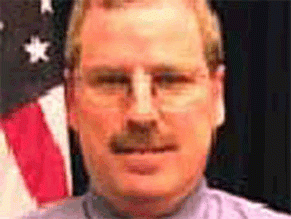|
World Jewish News

Robert Stephen Ford
|
U.S. delays Syria envoy over Hezbollah arms deal
13.04.2010, Israel and the World The American administration postponed "until further notice" the appointment of an ambassador to Damascus, Kuwaiti daily Al-Rai Al-Aam said over the weekend.
Robert Ford was supposed to have been confirmed by the Senate for the post, making him the first American ambassador in Syria since 2005.
According to the Kuwaiti newspaper, the decision to postpone the appointment was made following the transfer of truckloads of scud missiles from Syria to Hezbollah in Lebanon, in a shipment sanctioned by the Syrian government. The report is based on quotes from American sources who spoke with Al-Rai Al-Aam's Washington reporter.
The report added that Syria trained Hezbollah fighters in the use of Scud missiles and advanced anti-aircraft missiles last summer, on its soil. The exact type of Scud missile was not specified.
Scud B missiles have a range of up to 300 kilometers, which means they can reach most of Israel. Scud C and D missiles can reach as far south as Eilat.
The report says that Senator John Kerry, chairman of the Senate Foreign Relations Committee, passed the Syrian leadership a message from the U.S. administration when he visited Damascus earlier this month. Kerry asked for explanations about the relationship between Syria and Hezbollah, and voiced reservations over Syrian support for the Shi'ite organization.
The American source told the reporter the kind of weapons transported to Hezbollah could start a new war with Israel.
Tensions between Syria, Israel and Lebanon came to the fore most recently in late January, when Israel and Syria traded verbal blows and American and Israeli officials voiced concerns about Hezbollah rearming with the help of Syria and Iran. At the peak of the tension, the Israel Defense Forces held a prescheduled military drill.
However, Israel clarified to the Assad regime that it had no intention of attacking Syria, and even went as far as excluding reserves mobilization from the drill, so as not to alarm the Syrians even further. The steps appear to have had some effect, as tensions eased the following month and comments from all parties became more restrained.
Nevertheless, one of the central issues in the northern arena remains Hezbollah's plans to avenge the 2008 assassination of its senior operative Imad Mughniyeh, which it blames on Israel.
The organization is also building up its stock of advanced Syrian and Iranian weaponry; Israel has voiced particular concern that the organization might acquire anti-aircraft weaponry that would make it difficult for the Israeli Air Force to fly over Lebanon.
Moreover, Hezbollah's arsenal is estimated to contain tens of thousands of rockets capable of reaching nearly any target in Israel. There was a dramatic improvement in the rockets' range, precision and strength despite UN Resolution 1701, which stabilized the northern front but has failed to prevent weapon smuggling.
Israel is closely following the weapon smuggling, and continues to issue warnings. However, Netanyahu's government will find it hard to justify to the international community and even to the public at home a military move to keep the enemies from rearming, which could trigger a Third Lebanon War.
By Avi Issacharoff and Amos Harel
Haaretz.com
|
|
